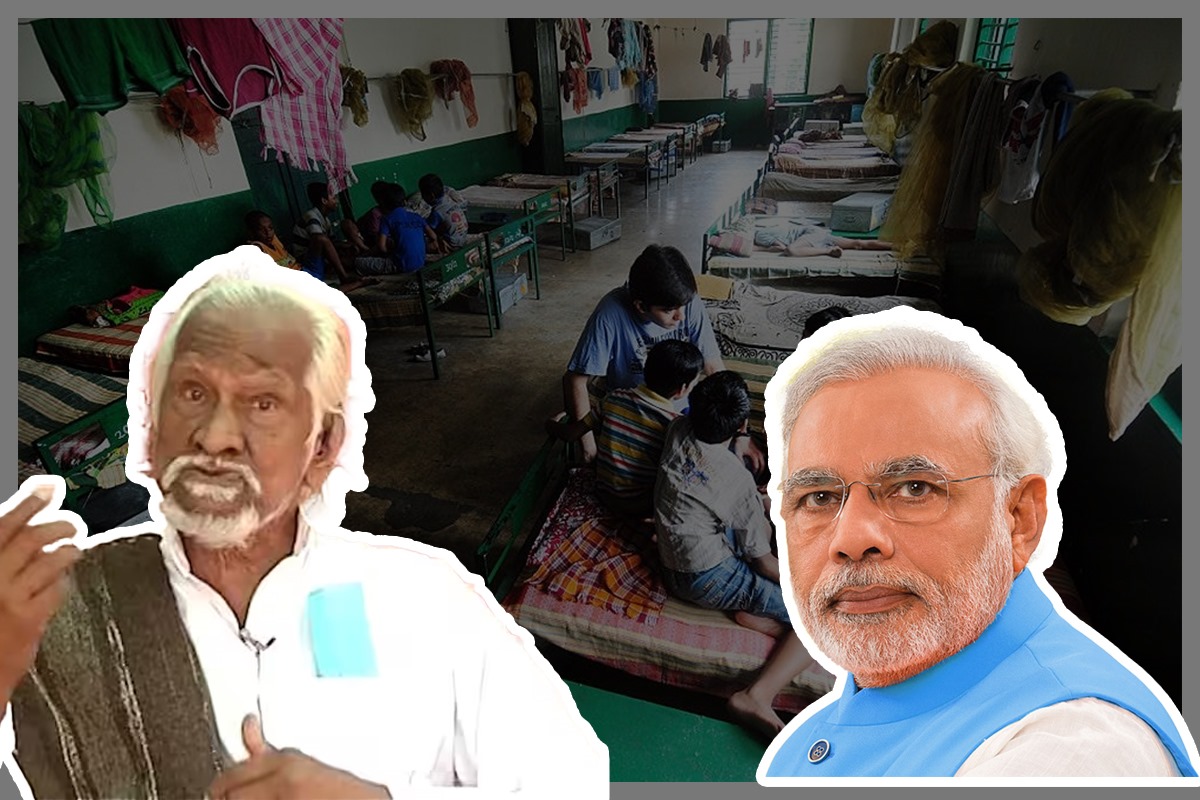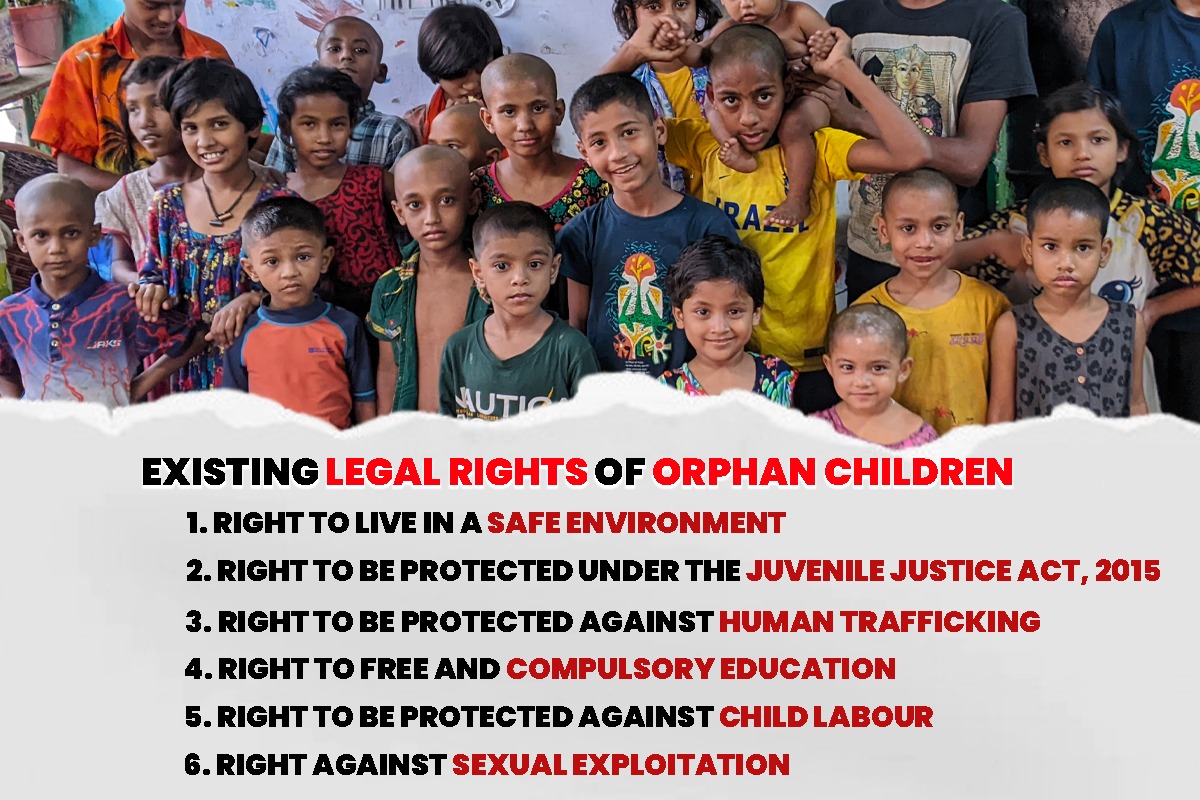

NEW DELHI: Social worker Shankar Baba Papalkar, renowned for his tireless efforts in providing shelter and care to orphaned and destitute children with disabilities in Amravati, has made a poignant request upon receiving the prestigious Padma Shri award this year. Papalkar, adamant about using this platform for a cause close to his heart, has expressed his earnest desire to meet Prime Minister Narendra Modi.
But why does he desire this meeting? He said, “I accepted the Padma Shri this year because I was promised that if I did, I would get to meet the PM. When I meet Modiji, I will tell him how important it is to amend the law that prevents remand homes and shelters from keeping abandoned and orphaned children over the age of 18.”
READ MORE: Hemant Soren in Jharkhand Assembly: Governor, Raj Bhavan orchestrated my arrest – THE NEW INDIAN
This 81-year-old man has dedicated his life to the mission of saving the lives of orphans and destitute children who become roofless after they turn 18. Every year, around one lakh orphaned and destitute children find themselves roofless after they turn 18 because of the law. With nowhere to go, they languish.
For such teens, Papalkar says rehabilitation is often more important than education as it secures their financial independence. He is no less than a messiah for such children, who are in danger of turning to crime for sustenance.
While India boasts laws and regulations governing orphanages and their operations, including ‘The Orphanages and Other Charitable Homes (Supervision and Control) Act, 1960,’ Papalkar’s plea sheds light on the need for legislative reforms to safeguard the rights and welfare of orphaned children.
But what is the law?
One of India’s notable laws about orphanages is the Orphanages and Other Charitable Homes (Supervision and Control) Act of 1960. This legislation empowers state governments to establish a Board of Control tasked with overseeing and supervising all such facilities within the state. The Act also authorises the board to issue specific directives concerning its tenure, composition, and functions.
Existing Legal Rights of Orphan Children
An orphan child is first and foremost a human being, entitled to all the fundamental rights guaranteed under Part III of the constitution. These rights include the right to life, equality, education, freedom of speech and expression, and protection against exploitation.

Recognising the vulnerability of orphan children, the law endeavours to afford them additional legal rights to ensure their equal protection and well-being in society. The legal rights bestowed upon an orphan child are on par with those of a child with parents. Furthermore, in addition to the protection offered by fundamental rights, the legislature has enacted special statutes to safeguard the rights of orphans in India further.
1. Right To Live in a Safe Environment: To ensure the safety of children living in orphanages, the Orphanages and Other Charitable Homes (Supervision and Control) Act of 1960 was enacted. This legislation primarily focuses on the establishment of a board by State Governments to oversee and regulate orphanage facilities, as outlined in Section 5.
Additionally, the Act mandates that no orphanage may operate without obtaining certification from this board, as stipulated in Section 13. The authority to grant or deny certification lies with the board, as outlined in Section 15. Furthermore, the board reserves the right to revoke certification if the conditions outlined in the certificate are violated or if the board’s conduct is deemed unsatisfactory or inappropriate, as specified in Section 17.
2. Right To Be Protected Under The Juvenile Justice Act, 2015: Regarding the exploitation of children in orphanages in the State of Tamil Nadu, it was determined that Juvenile Justice Boards cannot remain passive observers. They possess the authority to issue orders even in cases not formally brought before them. If a Juvenile Justice Board becomes aware that a child has been detained in a judicial or police prison, it is their responsibility to intervene.
The Juvenile Justice Boards are tasked with ensuring the prompt release of the child on bail or arranging for their transfer to an observation home or a place of safety. It is imperative to note that no entity, including law enforcement agencies such as the police, can disregard the provisions of the Act.
3. Right To Be Protected Against Human Trafficking: Initially, the legislature passed the Immoral Traffic (Prevention) Act of 1956, primarily focusing on safeguarding the rights of women and girls.
Originally named the Suppression of Immoral Traffic in Women and Girls Act, its main objective was to protect girls who were being coerced into immoral activities. However, the Act underwent an amendment, changing the terminology from “women and girls” to “human beings” to broaden its scope beyond gender specificity.
4. Right To Free And Compulsory Education: Orphaned children, as well as any other typical child under the age of 14, are entitled to compulsory education, provided at no charge. The state ensures this right to free education under Article 21-A, and it is further reinforced by Section 3 of the Right of Children to Free and Compulsory Education Act of 2009.
5. Right To Be Protected Against Child Labour: An orphan or any child below the age of 14 must be safeguarded from engaging in child labour, except when assisting their family or family enterprise, or working as an artist in the audio-visual entertainment industry, encompassing advertisements, films, television serials, or similar entertainment or sports activities.
However, these exceptions do not permit participation in circus activities, provided that the child’s education remains unaffected. These protections are outlined in the Child and Adolescent Labour (Prohibition and Regulation) Act of 1986.
6. Right Against Sexual Exploitation: The protection against sexual exploitation is assured under Article 21, which encompasses the right to life and personal liberty. However, recognising the need for further safeguards, the legislature enacted the Protection of Children from Sexual Offences (POCSO) Act in 2012.
This legislation categorises various forms of sexual assault, including penetrative and aggravated sexual assault, and imposes stringent penalties, including rigorous imprisonment. Additionally, fines are levied, with the proceeds earmarked for corrective measures benefiting the victim.
But despite these existing frameworks and laws, India needs to hear the voices of people like Shankar Baba Papalkar, who dedicate their lives to the welfare of the backbone of this country- its youth.
View this post on Instagram